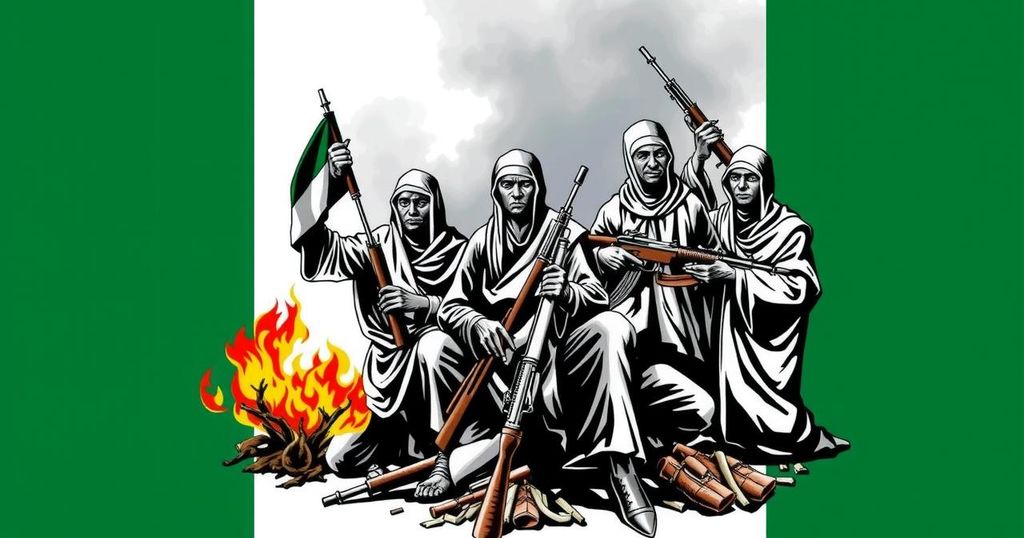The article discusses the emergence of the Lakurawa terrorist group along the Niger-Nigeria border, counter to Nigerian army claims of it being a new entity. Analysts assert Lakurawa has existed since 1999 and transformed from a local militia to a violent group exploiting socio-economic vulnerabilities. It highlights inadequate government security and the historical context of this group’s operations, suggesting a need for reform in policing and community protection.
The emergence of a new terrorist group, Lakurawa, along the Niger-Nigeria border has been highlighted by the Nigerian army, which attributes this development to the recent political upheavals occurring in the Sahel region. However, analysts argue that the existence of Lakurawa is not a novel phenomenon. In reality, this group has been active in the area since 1999, transforming from a network of herders into a violent entity that claims to uphold its interpretation of Islam. The socio-economic crises in Nigeria’s northwest, marked by rampant insecurity, poverty, and hunger, have indeed created a fertile ground for such groups to thrive.
Academic research indicates that Lakurawa was originally established as a local militia with the support of traditional leaders in response to the surge of banditry in 2016. Their initial purpose was to safeguard communities against armed threats in exchange for financial compensation. Over time, however, they transitioned into a self-serving terrorist organization, imposing their own version of sharia law and levying taxes on local residents. This unfortunate evolution demonstrates the failures of Nigeria’s government to secure its citizens effectively, resulting in the proliferation of ungoverned spaces and the empowerment of groups like Lakurawa.
Nigeria’s northwest region is marred by insecurity and armed conflict, leading to heightened poverty and frustration among its residents. The porous borders and lack of government presence have allowed extremist groups to gain significant ground. The situation has been exacerbated by external influences, including recent military coups in neighboring countries that have destabilized the entire Sahel region. These events combined with inadequate security responses have created an environment where groups like Lakurawa have thrived. Analysts assert that understanding the historical context of Lakurawa’s formation is critical to addressing the underlying issues of insecurity in this part of Nigeria.
In conclusion, attributing the rise of Lakurawa to current geopolitical events may be an oversimplified narrative that downplays more profound, systemic failures within Nigeria’s governance and security frameworks. The group’s long-standing presence and the evolution of their tactics emphasize the necessity for improved local security measures, the establishment of state police, and an increase in regional cooperation against transnational threats. To effectively eliminate such groups, Nigeria must undertake comprehensive reforms to empower communities and prevent future escalations of violence.
Original Source: www.defenceweb.co.za






